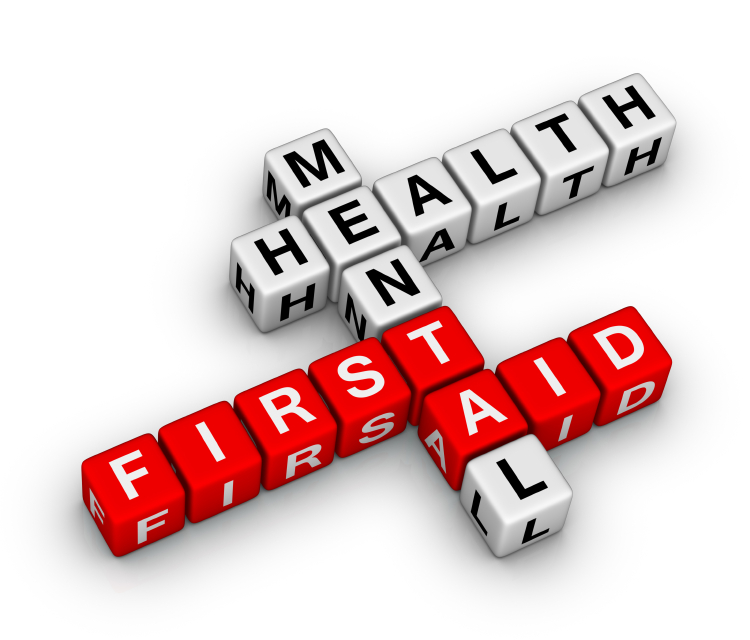While it’s commonplace for employees to be trained in first aid or cardiopulmonary resuscitation (CPR) in many workplaces, the concept of first responders for mental health crises is still in its infancy. Millions of workers take sick leave or paid time off each year because of mental illness, and employers face lost revenue through absenteeism, reduced productivity, and healthcare insurance claims. Could mental health first aid (MHFA) training benefit your organization?
 |
“While there is a growing recognition by workplaces of the impact of mental health problems and an increase in awareness-raising initiatives and support for employees, not enough is being done to equip staff with the necessary skills to rapidly respond to a colleague in crisis or detect the early signs and symptoms of a mental health problem,” says Mental First Aid Australia Deputy CEO, Nataly Bovopoulos in a press release.
“Essentially, more needs to be done to help employees play an active role in supporting their coworkers and to respond appropriately when circumstance dictates,” says Bovopoulos, who maintains that the implementation of MHFA training and the appointment of so-called “mental health first aid officers” in workplaces would help bridge the gap and could make a vital difference.
“It is well known that a delay in seeking help for mental health problems can increase the risk of a prolonged absence from work. Also, the longer a person is away from work, the less likely they are to return. Both scenarios are enormously costly to business,” she adds.
Need fresh content for your wellness training? Check out the Wellness Library in BLR’s award-winning TrainingToday. Find out more.
MHFA responders have the necessary skills to recognize changes in emotions, thinking, and behavior and the confidence to reach out to colleagues they are concerned about. They are also in a position to encourage coworkers to seek appropriate professional help early on, well before their condition deteriorates, according to the press release.
“The courses don’t aim to teach people how to be counsellors or mental health professionals, but rather like traditional first aiders, how to use skills to keep others safe in crisis situations—either until professional help can be found or until the crisis resolves,” says Bovopoulos.
MHFA courses teach participants skills addressing how to offer help to people experiencing suicidal thoughts and behaviors, nonsuicidal self-injury, panic attacks, stress reactions after a traumatic event, severe psychotic states, aggressive behaviors, and severe effects of substance use.
MHFA officers also learn how to recognize developing mental health problems such as depression, anxiety, psychosis, and substance use problems.
Until recently, Australian workplaces that provide staff with access to MHFA training and that appoint officers has been confined to a very narrow band of industry—primarily healthcare, the public sector, and the education sector.
No time for wellness training? Let employees take courses at their own pace with the Wellness Library from BLR’s TrainingToday. Get more information.
Bovopoulos hopes that the industries most at risk of having employees with mental illness—such as hospitality, utilities, IT and telecommunications, media, finance, and insurance—will take notice of this trend, as they would greatly benefit from training their staff.
She says the concept is picking up momentum with major workplaces such as corporations and law firms, which are actively championing the training of workplace MHFA officers with assistance from Mental Health First Aid Australia.
“Having these large organizations embrace the idea is very encouraging, and I am confident that as other businesses learn of the benefits and successes of appointing mental health first aid officers, many more will follow suit.”
The Mental Health First Aid program has been licensed to organizations in more than 22 countries worldwide. In the United States, the National Council for Behavioral Health manages Mental Health First Aid USA. President Barack Obama has endorsed the program for employers and other organizations such as schools and the military.
And, as BLR® reported, First Lady Michelle Obama took a short version of the training herself, endorsing the program for government agencies and private businesses and calling for three million Americans to be trained in MHFA. “It really gives you the skills you need to identify—and ultimately help—someone in need,” she said. “And you never know when these skills might be useful.”
The worldwide goal of the MHFA program is to have employees trained to respond to mental health issues as common as those trained to treat physical injuries in the workplace.
